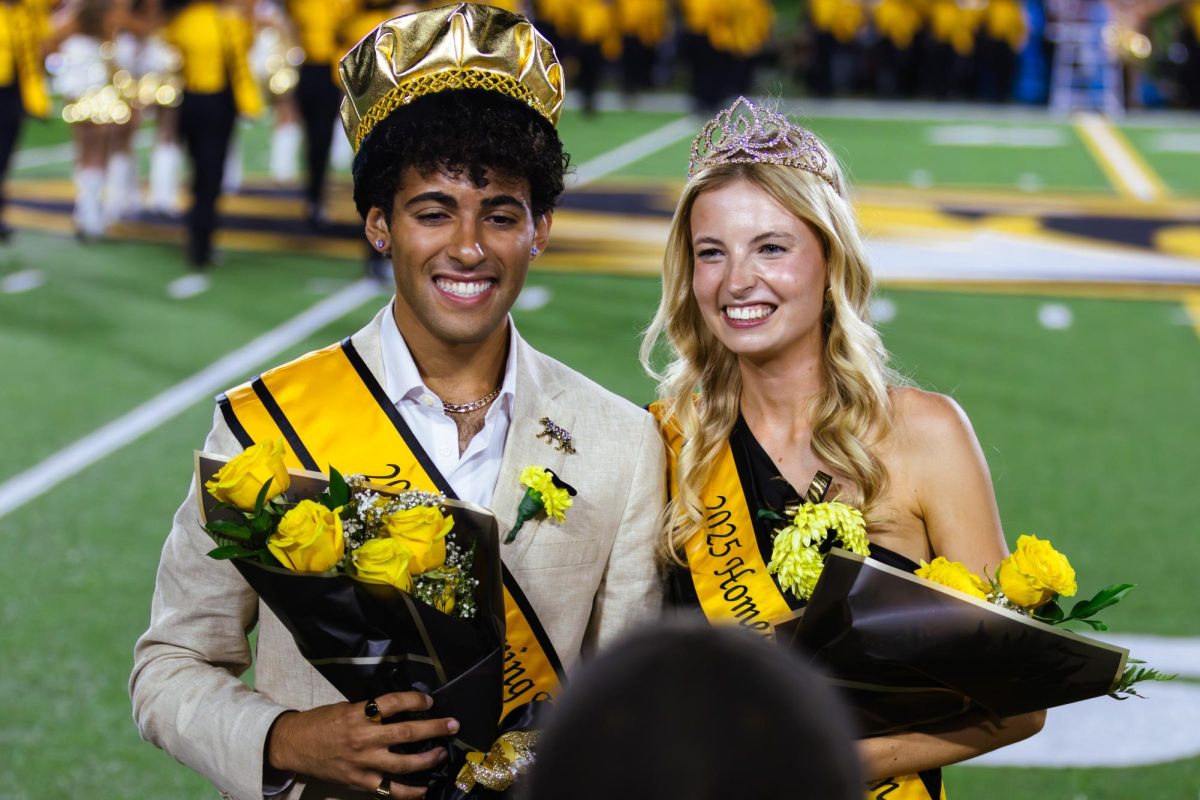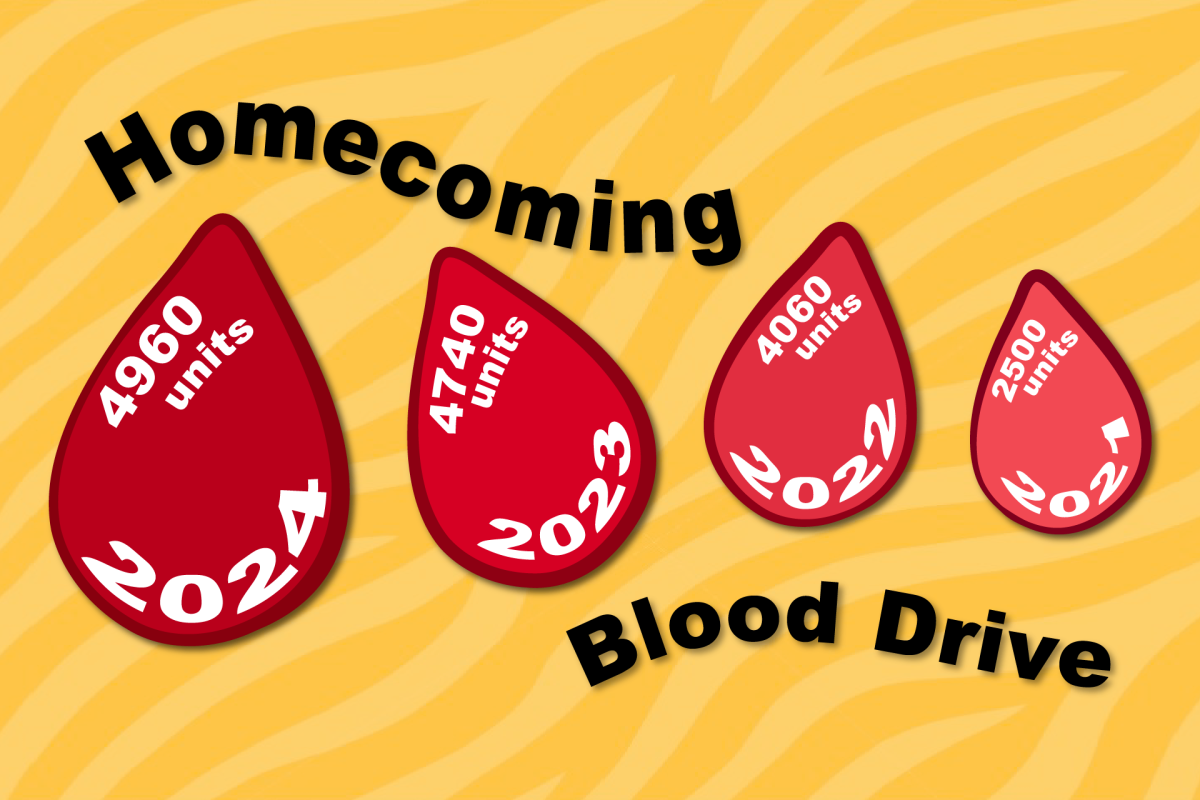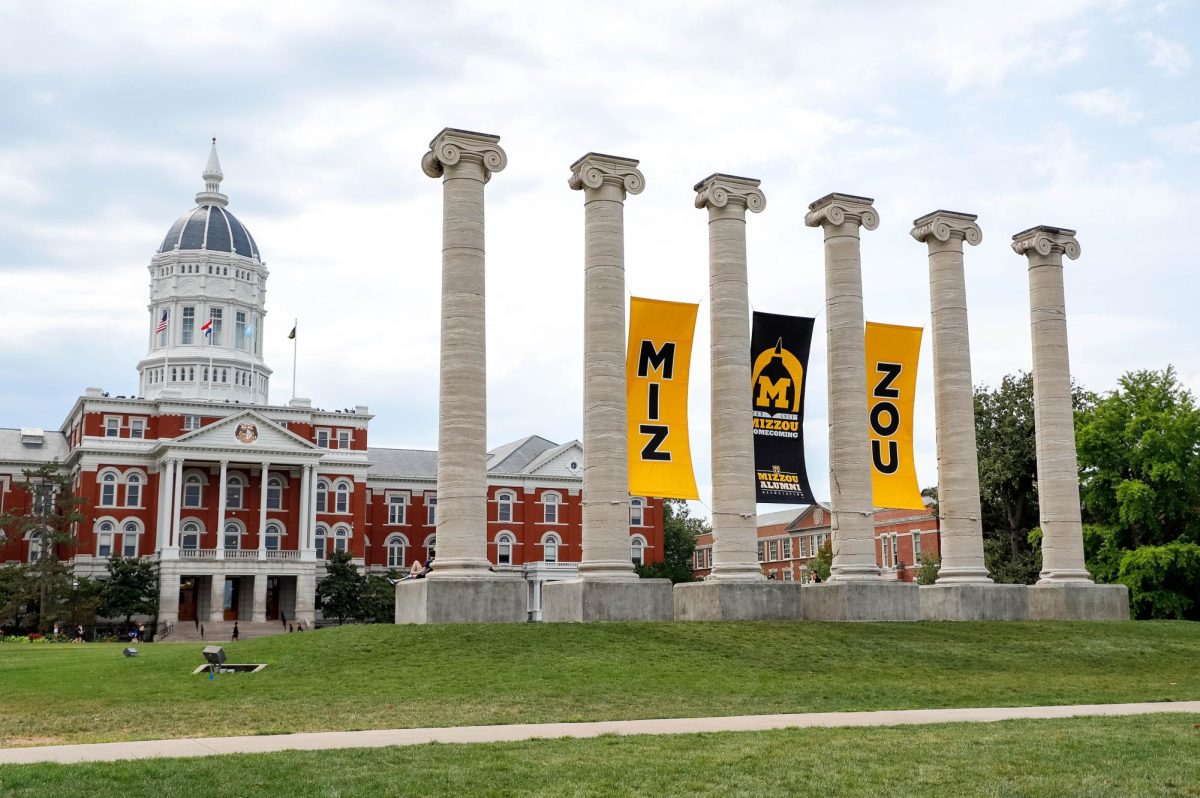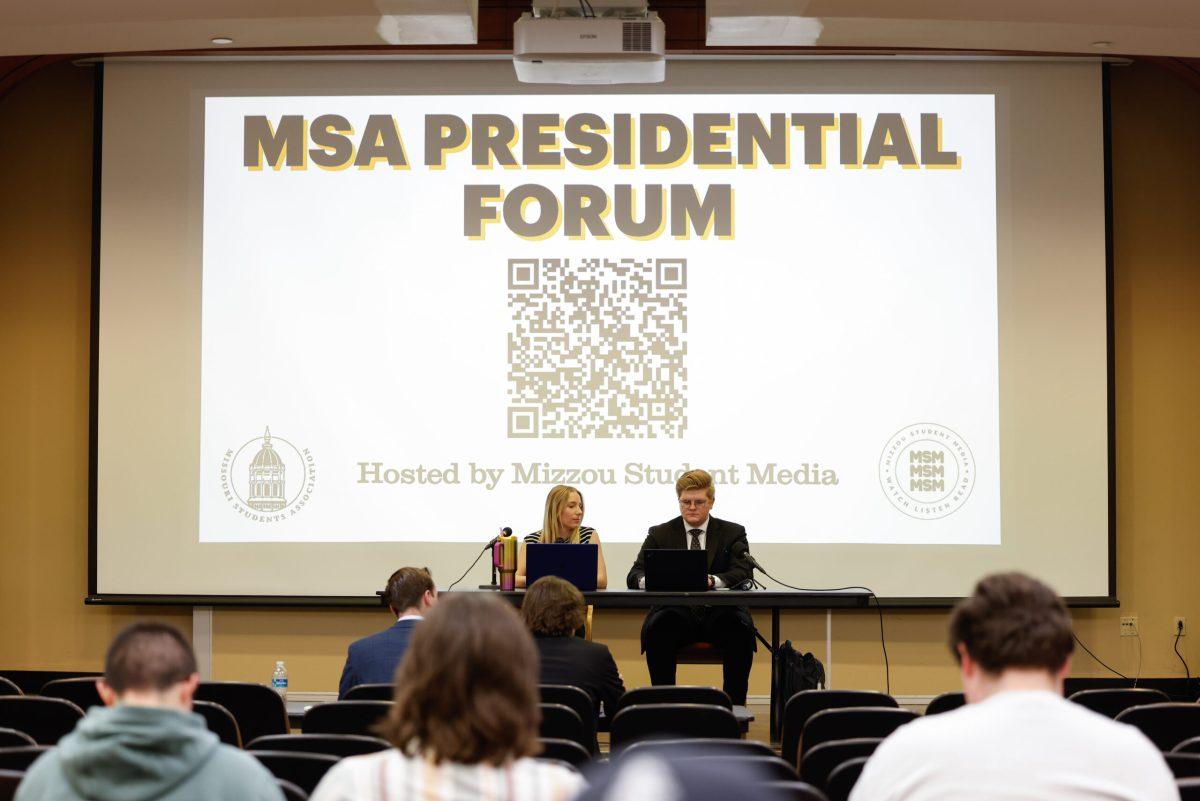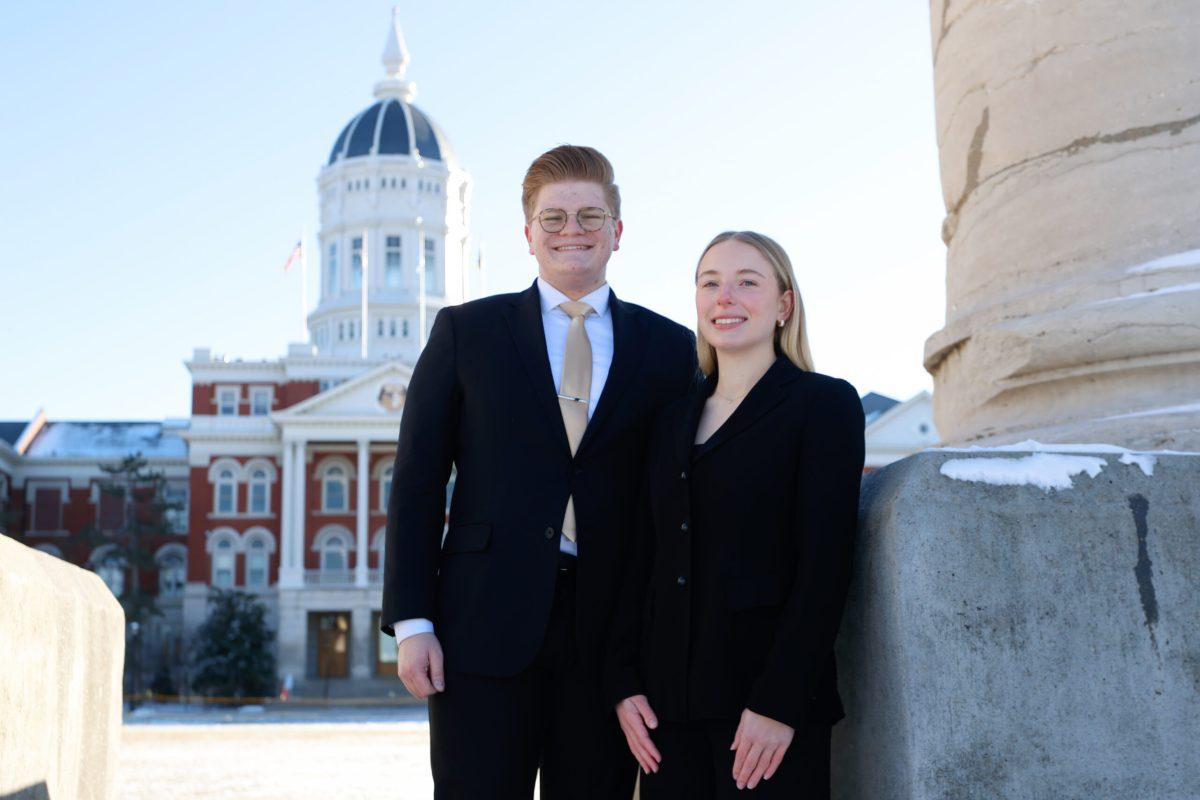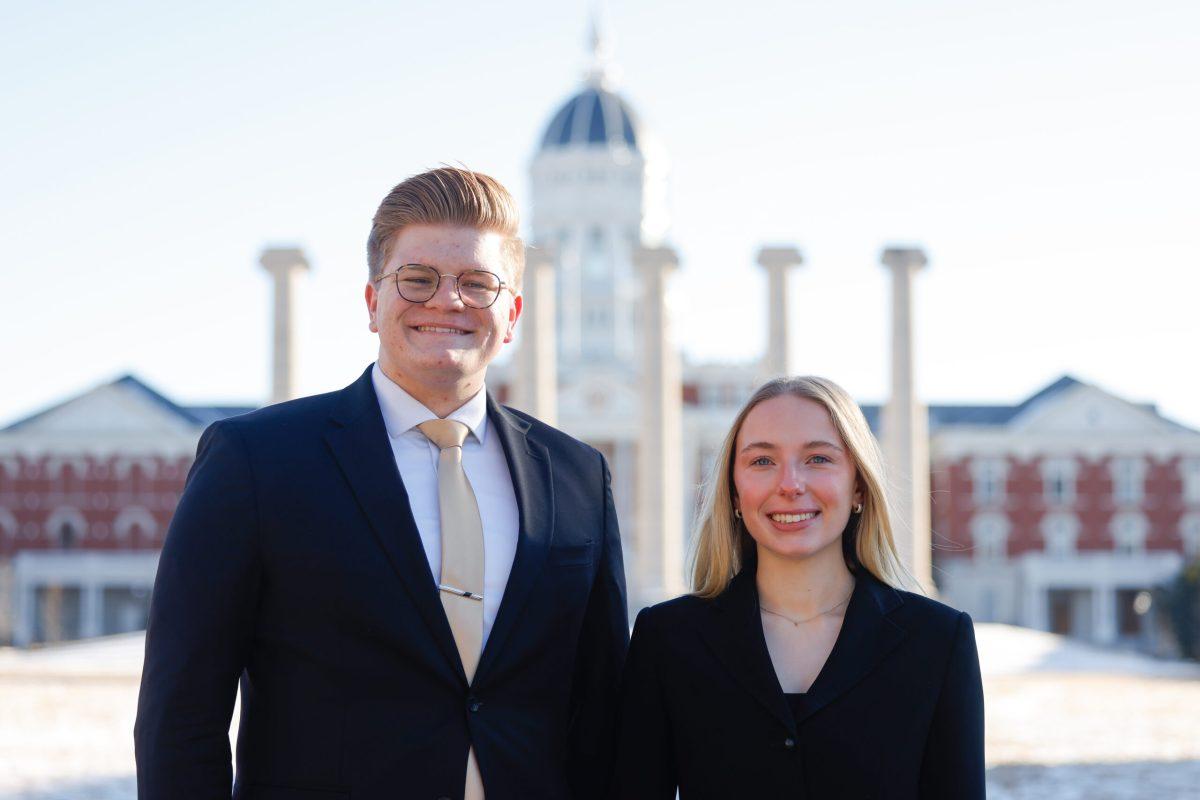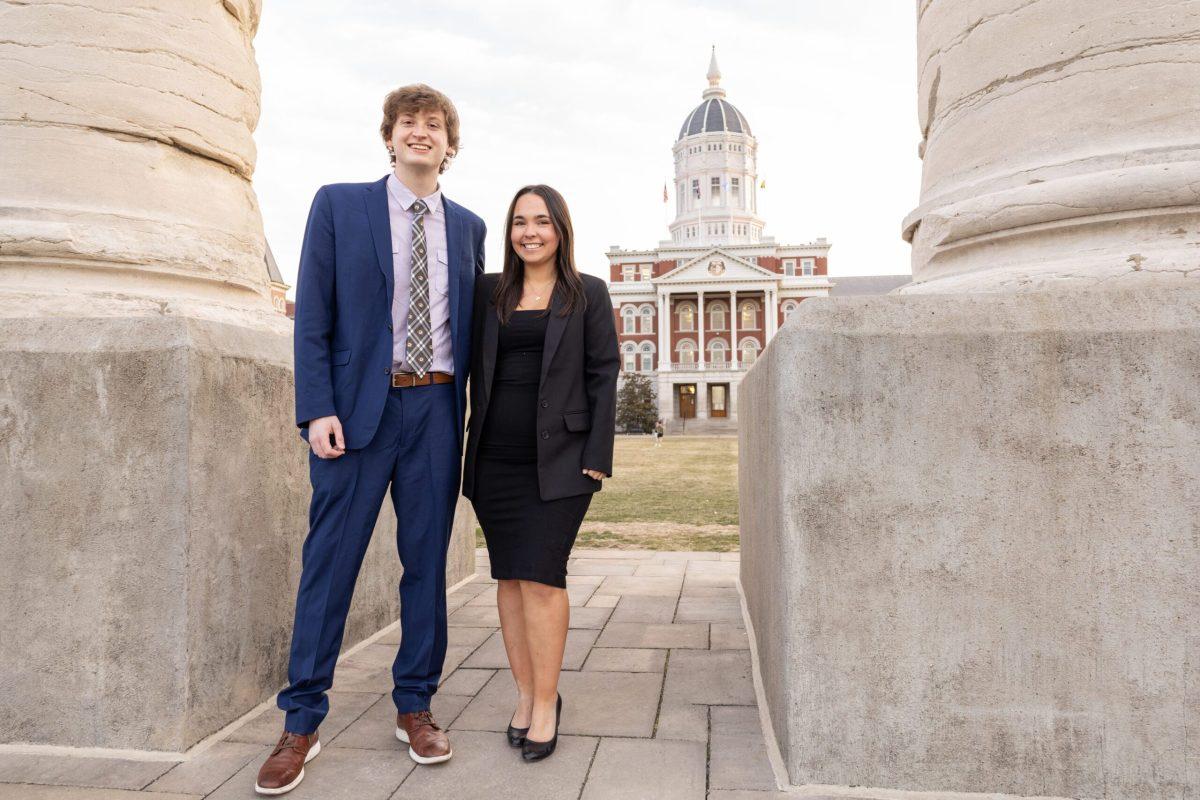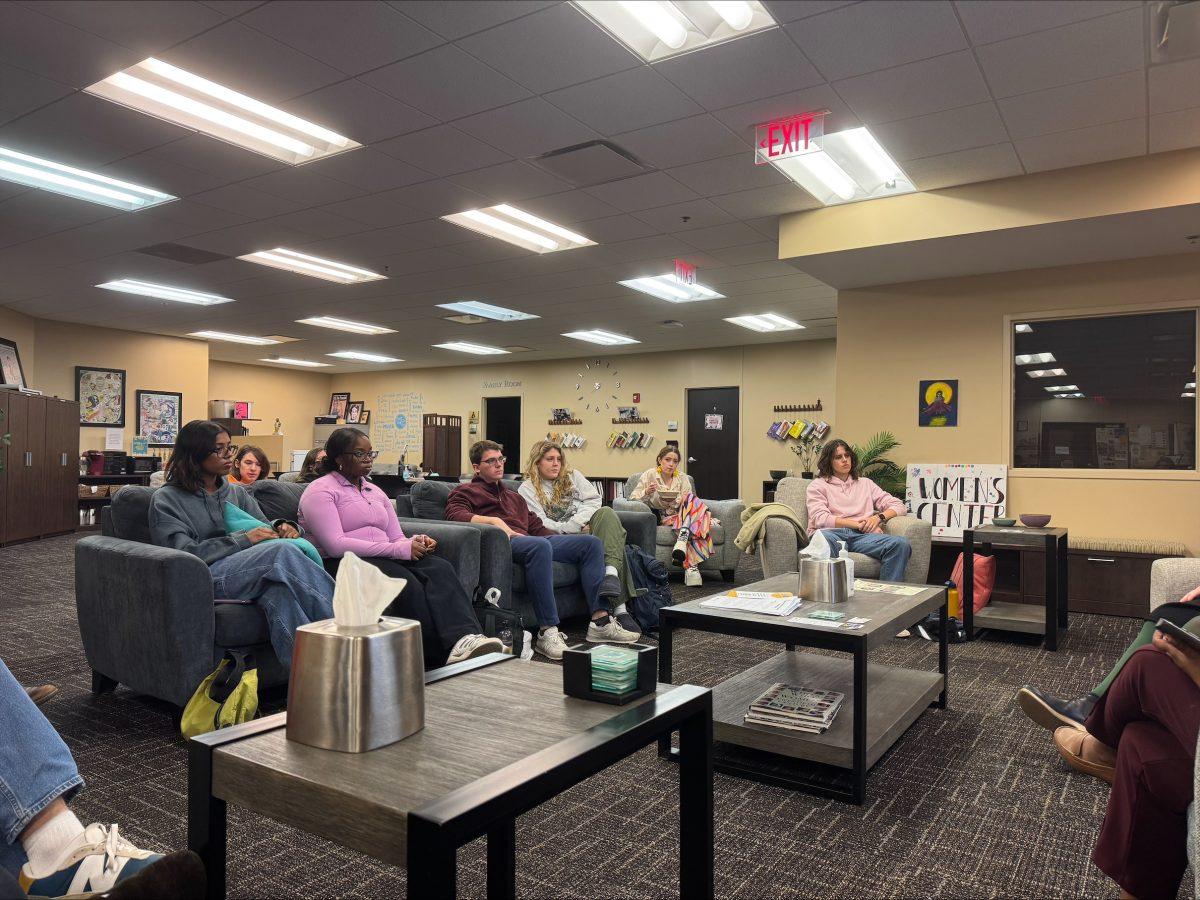The two slates for the Missouri Students Association presidential election spoke on the issues of Greek life, mental health and MSA outreach during the second debate, held on Feb. 27.
“All In Mizzou” is fronted by presidential candidate Solomon Davis and vice presidential candidate Briana Dinwiddie. Presidential candidate Jennifer Sutterer and vice presidential candidate Mary O’Brien head the competing slate, “Show Your Stripes Mizzou.”
####1. Virtual mental health visits####
Davis and Dinwiddie emphasized that digital mental health visits are tantamount to their platform. They said virtual visits would allow students to contact mental health providers digitally, such as through Skype, to seek treatment.
Both Davis and Dinwiddie said the MU Student Health Center lacks suitable accessibility and believe the program will address the issue.
When Sutterer asked Davis for the financial plan behind these virtual appointments, Davis said that MU can already provide the service through Aetna, the school’s insurance company. The financial cost for students will be nonexistent.
Davis also said that to increase awareness about student mental health in the Missouri legislature, students should increase their activity in programs like the Associated Students of Missouri. ASUM lobbies at the state capital on behalf of students.
####2. Income-sharing agreements####
Sutterer brought up a major part of their campaign: income-sharing agreements. Income-sharing agreements are an alternative way to student loans that involve the university paying for one’s tuition and that individual paying a portion of their salary back after graduation, according to Sutterer.
“These agreements aren’t looking at your past,” Sutterer said. “They are looking at your future.”
Davis said that his platform couldn’t get behind the idea because it is a newer program that he believes doesn’t work for all students. He also brought up that students who weren’t earning high income salaries could end up paying more from interest.
“It’s not a one-size-fits-all,” said Davis.
Sutterer rebutted saying that the agreements had worked at Purdue University and was a great economic plan. She also mentioned that the university still needed to make money.
####3. Collaboration was the buzzword of the night####
Both slates mentioned the word “collaboration” multiple times throughout the night.
“We want to give them a seat at the table and hand them the microphone,” Sutterer said.
Sutterer also mentioned that her and O’Brien can’t speak for all MU students and don’t understand all the problems.
Instead, they want students to come to them and express their concerns. She also mentioned collaborating with different organizations to fix problems at MU.
Davis and Dinwiddie said they’ve contacted organizations, such as STRIPES, related to all issues listed in their platform and have created solutions they believe are practical.
####4. Increased MSA outreach####
Only 35 of the 81 available seats are filled in the MSA senate, according to a Feb. 22 senate roster. Both Sutterer and Davis said they want to increase the senate’s outreach program and general image.
Both said they’ve seen a lack of awareness of MSA from students across campus, going so far as to say that MSA needs to rebrand and reestablish itself.
Davis said they need “more boots on the ground” regarding MSA reaching out to students and learning about the issues they hold important.
Sutterer said she wants to reach out to different departments in the university to spread the impact of MSA, while also holding more public MSA events, like town hall meetings.
####5. Greek life proposals####
Recently the university has been considering proposals that would reform MU’s Greek life system. Both platforms agreed that they are against hazing and support the self-reporting program proposed by the Fraternity and Sorority Advisory Board.
The platforms differed on a proposed change to housing. The proposal creates a three-tier program that would allow first-year members to live in house if their chapter had met certain academic and safety standards.
Davis — who is a member of the Phi Delta Theta fraternity — said that he supported the system and that they could still have fun while being safe.
On the other side Sutterer, while agreeing with the concept, said that she believes it should be left up to individual chapters on whether or not first year members could live in house.
Along with housing, Sutterer mentioned that her and O’Brien have been very vocal on their belief that Greek organizations have rights with hosting parties on private property.
Voting for the MSA presidential election takes place March 4 to March 6.
_Edited by Ethan Brown | [email protected]_





